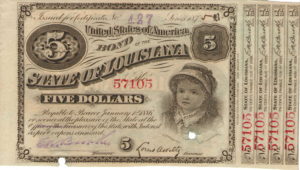
Pariter Securities, LLC, headquartered in Guaynabo, Puerto Rico, was censured and fined $10,000 by Financial Industry Regulatory Authority (FINRA) after consenting to findings that the firm had failed to adequately establish, maintain and enforce a supervisory system and written supervisory procedures to prevent its registered representatives from exercising discretionary power in customer accounts prior to obtaining written authorization granted from customers and accepted by the firms. Letter of Acceptance, Waiver and Consent, No. 2015045363001 (Dec. 9, 2015).
According to the AWC, in June 2009, the firm had offered an investment strategy to a few of its customers that involved the purchase and sale of U.S. treasury bonds based on the firm’s anticipation of fluctuations in treasury rates. The AWC stated that when this strategy commenced, the firm had hired an outside compliance consultant to prepare a limited trading authorization form that customers had to sign in order to participate in the firm’s treasury strategy, and which would allow a firm registered representative to exercise discretion in the customers’ accounts.
The AWC noted that two of the customers in the treasury strategy who had opened their accounts did not execute the limited trading authorization until several months after commencing trading. In one case, customer VR opened her account on June 15, 2009, and did not execute the limited trading authorization until November 26, 2010. Another customer, JS, had opened an account on January 19, 2010, yet did not sign a limited trading authorization until November 12, 2010.
Prior to the signing of the limited trading authorization, the firm registered representatives had exercised discretionary trading power over accounts by executing various trades in VR’s account an multiple trades in JS’s account with respect to the treasury strategy. The AWC noted that the customers’ accounts were not accepted by the firm as discretionary, and there was no written authorization provided by the customers until several months had elapsed.
FINRA found that during the time period between opening the two accounts and the execution of the two limited trading authorizations, the firm had failed to adequately establish, maintain and enforce supervisory procedures which ensured that customers in the treasury strategy had signed the limited trading authorization and that the accounts were accepted by the firm as discretionary prior to discretion actually being exercised in the customer accounts. The AWC further noted that the firm did not amend its written supervisory procedures to establish procedure that required written authorization for discretion from customers and acceptance of accounts as discretionary by the firm prior to discretion being exercised until July 13, 2011. FINRA found that the firm violated NASD Rules 3010(a) and (b) and FINRA Rule 2010 in this regard.
Securities brokerage firms have a duty to supervise their brokers and the sales practices of their brokers, and to review customer statements for, among other things, evidence of suitability, unauthorized trading, or excessive activity. FINRA Conduct Rule 3010 specifically provides that each member shall establish and maintain a system to supervise the activities of each registered representative and associated person that is reasonably designed to achieve compliance with applicable securities laws and regulations, and with the Rules of this Association. Final responsibility for proper supervision shall rest with the member.
By definition, a broker is liable for making unauthorized trades without the customer’s prior authorization. Absent written discretion, it is a violation of Section 10(b) of the Exchange Act, and Rule 10b-5, as promulgated thereunder, to effect transactions in customer accounts without their prior authorization or consent.
Customers also have a duty to review securities purchase and sale confirmations and review their securities accounts. If a stockbroker has placed unauthorized transactions in a customer account, the customer under most circumstances has a duty to act, or a duty to complain, or else generally, the customer may be deemed to have ratified these transactions, with actual or imputed knowledge, by doing nothing. Under such circumstances, a customer’s damages may be limited to the time they knew or should have known about the unauthorized transactions.
Guiliano Law Group
Our practice is limited to the representation of investors. We accept representation on a contingent fee basis, meaning there is no cost to unless we make a recovery for you, and there is never any charge for a consultation or an evaluation of your claim. For more information contact us at (877) SEC-ATTY








